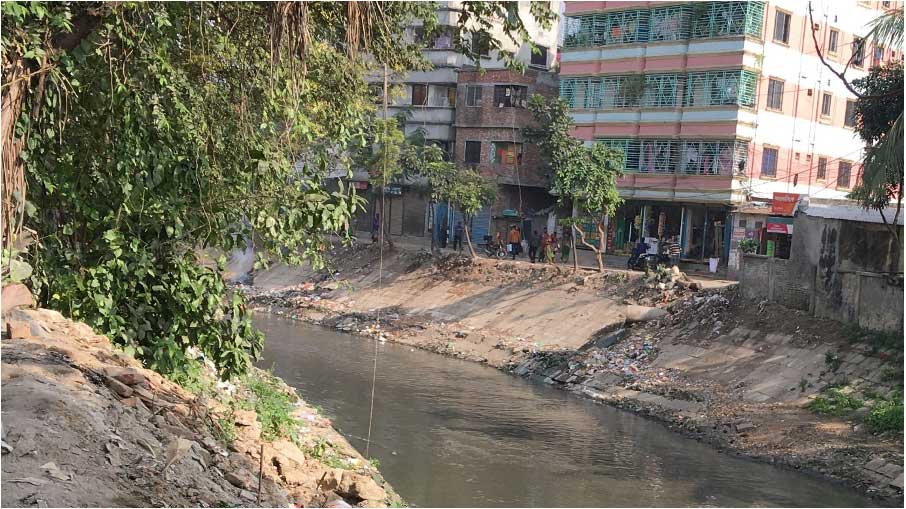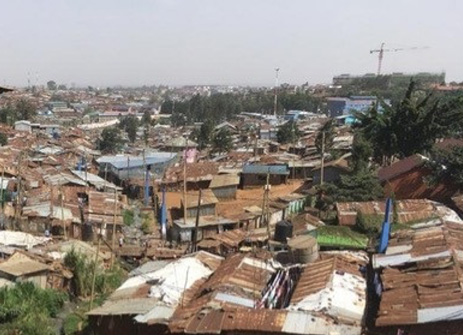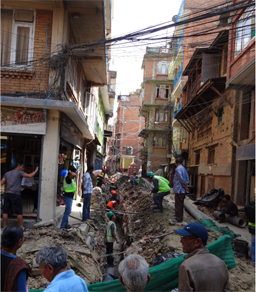A Water-WISER PhD offers a unique opportunity to contribute to the generation of new knowledge to improve water and waste infrastructure and services for the poorest and most marginalised members of our global community.
This Centre for Doctoral Training (CDT) is funded by the UK Engineering & Physical Sciences Research Council (EPSRC); however it is highly interdisciplinary, spanning Engineering, Physical & Environmental Sciences, Public Health, Economics and Social Sciences.
CDT researchers come from many different backgrounds, bringing their unique skills and expertise to address pressing global challenges that have resisted attempts at solutions from within one subject area.
What the CDT is about

Water and waste:
 Research carried out within the CDT falls primarily within the sphere of United Nations Sustainable Development Goal 6: ‘Ensure access to Water and Sanitation for All’. Within Goal 6 the focus is targets 6.1, 6.2 and 6.3, primarily on infrastructure and services which deliver high quality resilient water supplies, sanitation, hygiene, fecal sludge and wastewater management and related services. Worldwide, hundreds of millions of people still practice open defecation, and the health of billions more is affected by poor waste management. Many people still depend on unreliable water supplies outside of the home. Enormous investments are needed to deliver Goal 6, and the Water-WISER CDT will train researchers who will lead the effective delivery of these investments in years to come.
Research carried out within the CDT falls primarily within the sphere of United Nations Sustainable Development Goal 6: ‘Ensure access to Water and Sanitation for All’. Within Goal 6 the focus is targets 6.1, 6.2 and 6.3, primarily on infrastructure and services which deliver high quality resilient water supplies, sanitation, hygiene, fecal sludge and wastewater management and related services. Worldwide, hundreds of millions of people still practice open defecation, and the health of billions more is affected by poor waste management. Many people still depend on unreliable water supplies outside of the home. Enormous investments are needed to deliver Goal 6, and the Water-WISER CDT will train researchers who will lead the effective delivery of these investments in years to come.
Infrastructure and Services:

Water-WISER CDT researchers will develop new approaches (technologies, financial tools, institutional arrangements and responsive planning) that relate to improved water and waste infrastructure and service delivery on the ground. The focus is on the future. For this reason the work will primarily be located in rapidly-developing urban places, and rural places which will be home to 6.3 billion people by 2050, the majority in the Global South. These are the places where innovations to mitigate the negative impacts of poor water supplies and inadequate management of human and other waste will have the largest positive impact. Solutions developed in these areas will ultimately provide the key to re-imagining infrastructure and services in places such as the UK, where innovation is more constrained by ageing infrastructure
Engineered for Resilience:
Researchers within the CDT are also seeking solutions that can contribute to a more resilient and safer future, and which can adapt to and mitigate against threats, exemplified by the ongoing climate crisis and in emerging challenges such as COVID-19. A common theme is to explore how water and waste services are interlinked with wider development challenges such as food production, water security, housing, health and education. While the main focus is not specifically on emergencies or rural areas, resilience within the CDT does extend to a consideration of how society, infrastructure and services can absorb and respond to the needs of shifting populations including refugees and migrants.
‘Engineering’ in this context is about problem-solving to address complex rapidly evolving global challenges and may extend to include institutional and economic analysis, social and behavioural science, implementation science, health, epidemiology and impact studies. In all cases however the focus returns to the question of how to most effectively secure water and waste infrastructure and services for society.
